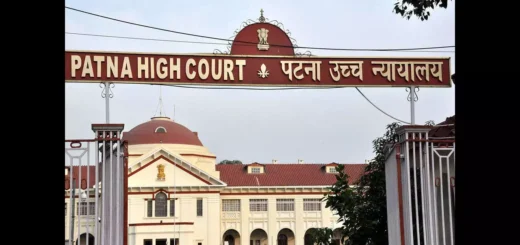The Supreme Court stated that just claiming a breach of contract does not lead to severe actions like blacklisting.

The Supreme Court ruled that simply claiming a breach of contract does not justify punitive actions like blacklisting a company. This decision came from a Civil Appeal filed by a company against a ruling from the Chhattisgarh High Court, which upheld a previous judgment. Justices J.B. Pardiwala and R. Mahadevan stated that for a contractor to face blacklisting due to an alleged contract breach, their actions must be significantly wrong or unusual to deserve such punishment. They noted that an allegation alone is not enough to trigger punitive measures. The Court stressed that authorities must be cautious before issuing a show cause notice, thoroughly understand the situation, and determine the nature of the alleged violation.
Senior Advocate Gaurav Agarwal represented the Appellant, while Advocate Ankit Mishra represented the Respondents. The Appellant, M/s Techno Prints, has been in the printing business for many years and is one of 30 firms registered with the Chhattisgarh Text Book Corporation, the Respondent. The case involved a show cause notice from the Respondent to the Appellant, asking why the firm should not be blacklisted for three years and why a security deposit of Rs. 5 lakhs should not be forfeited.
The Appellant was asked to explain why the corporation should recover losses caused by its failure to meet contract terms. The Respondent claimed the Appellant breached several clauses of the tender agreement. The Appellant challenged the show-cause notice from the Respondent by filing a Writ Petition in the High Court. The Single Judge dismissed this petition, leading the Appellant to file an Appeal, which was also rejected. Consequently, the Appellant brought the case to the Apex Court.
The Supreme Court, considering the case’s details, stated, “Generally, a Writ Court should not accept a petition that challenges a show cause notice unless it is clear that the notice was issued by someone without authority or is influenced by bad intentions.” The Court explained that while authorities have the power to blacklist a contractor, having that power and using it are different matters. It emphasized that there must be valid reasons to exercise such power. “As noted in Erusian Equipment & Chemicals Ltd. Vs. State of W.B. (1975), a blacklisting order harms the reputation of the affected party and is damaging. Given the serious nature of such an order, it would be unfair and arbitrary to impose such consequences on every contractor who fails to meet their contractual duties,” it added.
The Court noted that the ability to blacklist should not be used when the reasons are simply a breach of a contract term, especially when both parties have legal options available. It stated, “Considering the overall situation, particularly the unique facts of this case, we conclude that requiring the appellant to respond to the show cause notice and then wait for a final decision, which may be unfavorable, leaving him with no choice but to challenge it in the High Court, is merely a pointless exercise.” The Court also pointed out that issuing a show cause notice is often just a formality because, by the time it is issued, the authority has already decided to blacklist the Contractor.
“In many cases, the show cause notice is issued with a fixed intention. It must be issued because this Court has ruled that no blacklisting can occur without a hearing opportunity. Thus, the Authority merely completes this formality by issuing a show cause notice,” it added. The Court made it clear that the Respondent Corporation can still forfeit the EMD of Rs. 5 lakhs. Consequently, the Apex Court dismissed the Appeal, canceled the show cause notice regarding the potential blacklisting of the Appellant, and chose not to interfere with other aspects of the notice except for the blacklisting issue.
Cause Title: M/s Techno Prints v. Chhattisgarh Textbook Corporation & Anr. (Neutral Citation: 2025 INSC 236)
Appearance:
Appellant: Senior Advocate Gaurav Agarwal, Advocates Chandrashekhar A Chakdabbi, Vaibhav Shukla, Himanshu Sinha, and Anshul Rai.
Respondents: AOR Shantanu Krishna, Advocates Ankit Mishra, Archit Mandhyan, and Kanupriya Mishra.








